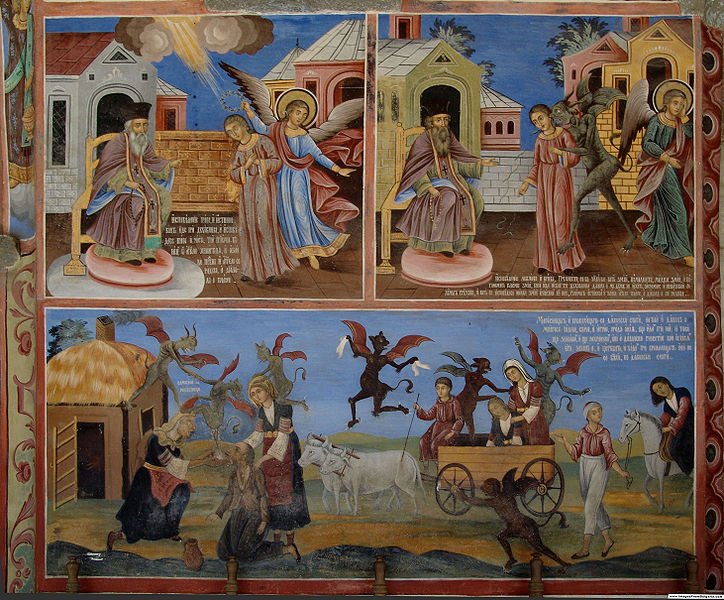The Use of Magic

Crime and Punishment
Author Keith Baker
Series Campaign Style
Publisher Atlas Games
Publish date 2003
High Magic
There are a number of spells that can be useful in determining the veracity of a statement, including detect thoughts, direct conversation, discern lies, light of truth, painful truth, read the guilty face, and zone of truth. However, the effects of these spells are either known only to the caster (like discern lies) or can be mimicked with illusion spells (such as light of truth). In some nations, these spells are not used in open court. However, in most mystically advanced nations, this has created the position of truthreader – an individual who must go through intense tests to prove her honesty and loyalty, but who is then trusted to provide honest mystical testimony to the court. An itinerant justice will usually have a truthreader in his retinue, or else he will be a truthreader himself. If the legal system is secular in nature, truthreaders will generally be arcane spellcasters or inquisitors from mundane backgrounds; clerics may be considered to have conflicting loyalties that may influence their ability to provide unbiased testimony. However, if church and state are intertwined or if the cleric represents an impartial god of knowledge or justice, this concern may be waived.
While truthreaders can determine the truth of testimony, this doesn’t mean that a truthreader will be used for every case. A justice may choose to rely on her own sense of human nature. Perhaps the justice believes that the jury has provided her with false information – but that their decision is the right one for the good of the community. In such a case, she would choose not to call in a truthreader.
In suspicious or important cases, a truthreader may be tasked to monitor the courtroom with Detect Magic, to ensure that no one attempts to influence the justice or anyone else through magical means so no charming the judge or using Mass suggestion on the jury. In the case of a particularly dangerous criminal, a spellbane or magehunter might be called in to provide additional protection against mystical influences; an inquisitor or other spellcaster would also be prepared to use mystical means to restrain the prisoners or maintain order. If possible, dispel magic will be cast on the defendant at the start of the trial, to remove Misdirection or any similar effect that could block divinatory spells.
Typical Magic
An itinerant justice may have inquisitor levels himself, or if there are close ties between church and state he may be accompanied by a truthreader, but this would be a rarity. In addition, the common people might mistrust evidence gathered through use of magic. In short, it would be something that an individual justice might make use of, but it would be unlikely to be the policy of the state – and the justice would want to be careful not to rely on magic, lest he draw suspicion upon his abilities and his rulings.
While sorcery might not be common in the realm, if people are aware of magic they’re going to be extremely alert for any use of magic to manipulate the process of justice. Even if he doesn’t have a truthreader, an itinerant justice may at least have a low-level wizard, sorcerer, or adept who has the ability to cast Detect Magic, to monitor proceedings and watch for mystical manipulation. If this isn’t possible, the guards will keep an extremely close eye on the accused and his friends – especially if he’s one of those suspicious adventurer types. Any attempt to use magic to modify the outcome of a trial will be severely punished.
Any sort of use of magic against an unwilling victim might be designated under the crime of witchcraft; there would be no distinction between using charm person on a guard or blasting him with magic missile. On the other hand, the society would probably be enlightened enough to realize that if magic is not used aggressively it presents no danger – so there’s no harm in the use of floating disk.
Low Magic
An extremely important question is whether a culture draws a distinction between arcane magic and divine magic. Quite often, a nation that will hunt and persecute the wizard for consorting with demons will revere the paladin or priest, and accept his powers as gifts from the gods. This knowledge can be quite valuable if you happen to be a wizard passing through hostile territory.

 Buy me a coffee
Buy me a coffee